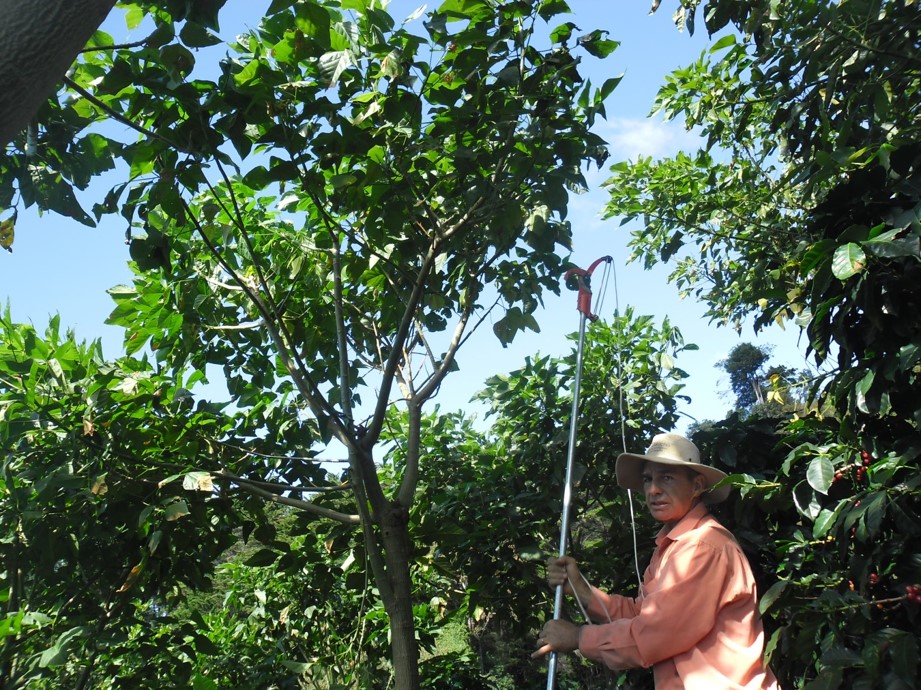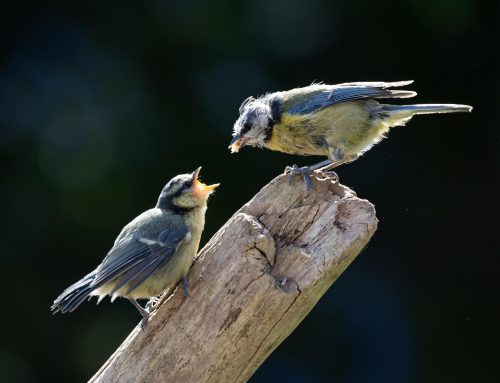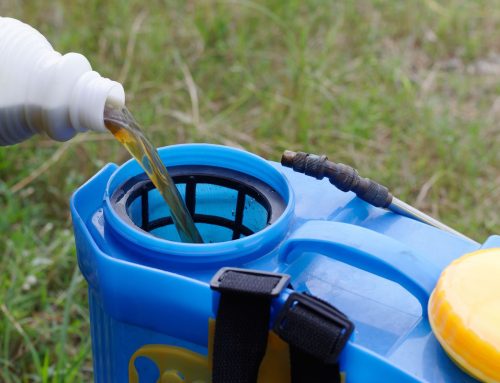by Juan R. Montero Gamboa & Ing. Gabriel Umana AEA León Cortés, Monsol Sustainable Farm, Los Santos Zone, Costa Rica
(This post is part of a summary of presentations prepared by Dr Stephanie Williamson, PAN UK, from the Coffee without HHPs workshop in Costa Rica, April 2017)

Shade management at Monsol Sustainable Farm
Key messages:
- A farmer needs to become an expert observer of his/her fields, learning how to improve soil health year by year.
- Importance of producers learning and trying things out together.
Their farm used to be 100% high external inputs but they saw real declines in productivity over the years, they got into debt and this was the reason they decided to change practices to ecological methods. Mr Montero started by converting his 22 ha of coffee and avocado trees to organic production but on the heavy clay and acidic soils with very little soil organic matter and on steep slopes typical of this zone, achieving good yields in organic systems was very difficult. He decided to move away from organic certification but put more effort into improving soil health, using soil stimulant materials (biostimulants) and other biological products.
With this focus on healthy soils and beneficial microbial support for growing healthy and robust coffee bushes, he has been able to eliminate herbicide use. Instead of killing weedy plants with herbicide, the farm practice is now to cut undesirable weedy vegetation with motor strimmers or manual slashing, in November just before harvest, while leaving desirable species to grow as ground cover and soil protection in the coffee groves. The weed cutting generates almost 50 tons per hectare of vegetation, a valuable resource too good to waste. This green waste is left as mulch in the groves or turned into compost, adding biofermenter microbial products to speed up decomposition. Twice yearly pruning of shade trees also provides over 6 tons per hectare of branches and foliage for green composting or soil cover.
The farm makes use of horse manure and waste from livestock feeding stalls and also produces its own worm compost and ‘worm juice’ fertiliser as well as some home-made microbial products, useful for different stages in the coffee production cycle. Mr Montero has had good results in controlling coffee rust disease by using sulfo-calcium traditional mineral preparation, combined with careful grove monitoring to identify the first ‘hot spots’ of disease infection. A micro-processing plant helps the farm add value to its coffee. Mr Montero regularly hosts open days as an opportunity for other coffee growers to compare practices and acquire new knowledge to improve their production methods.
Download the presentation here.





